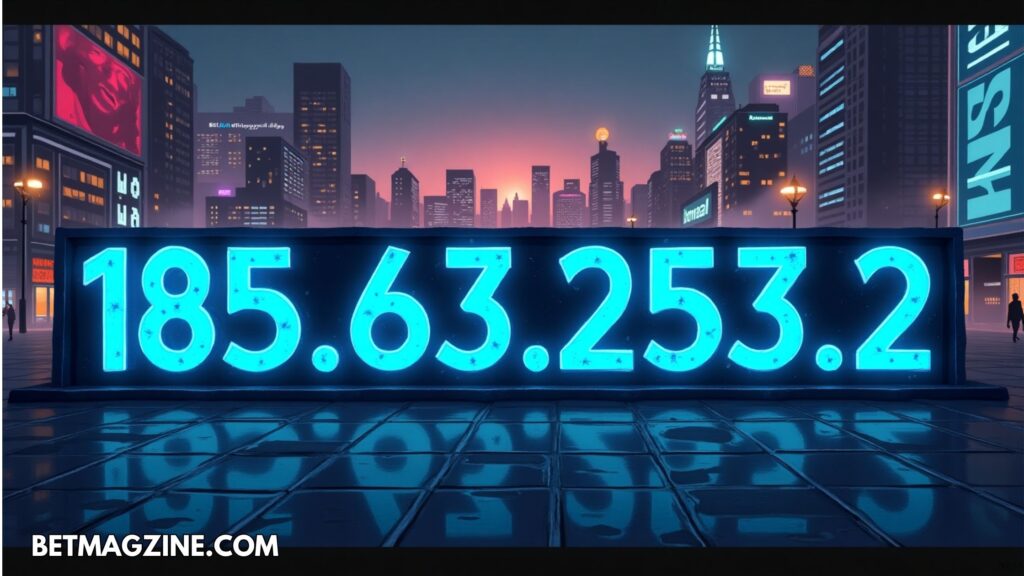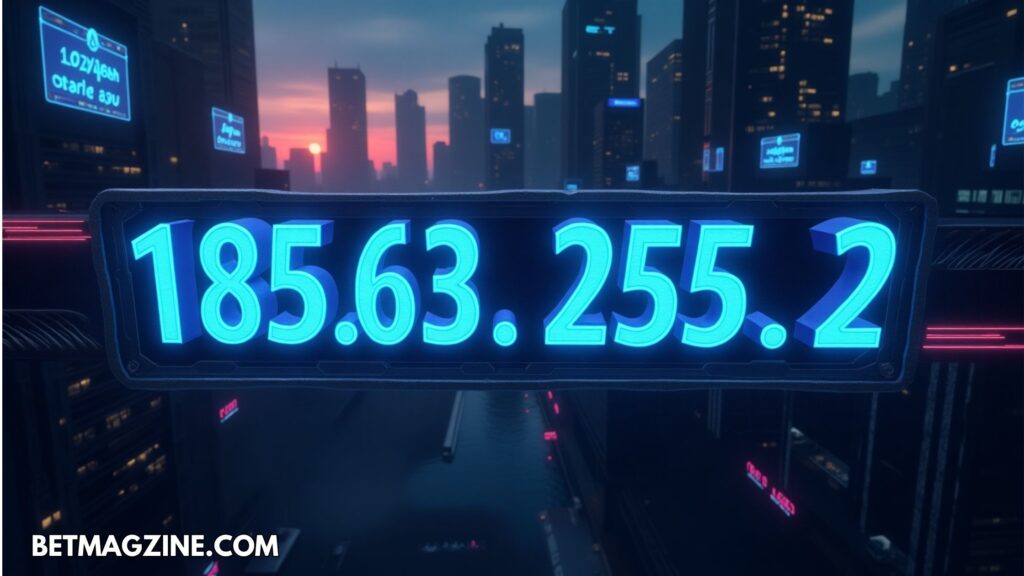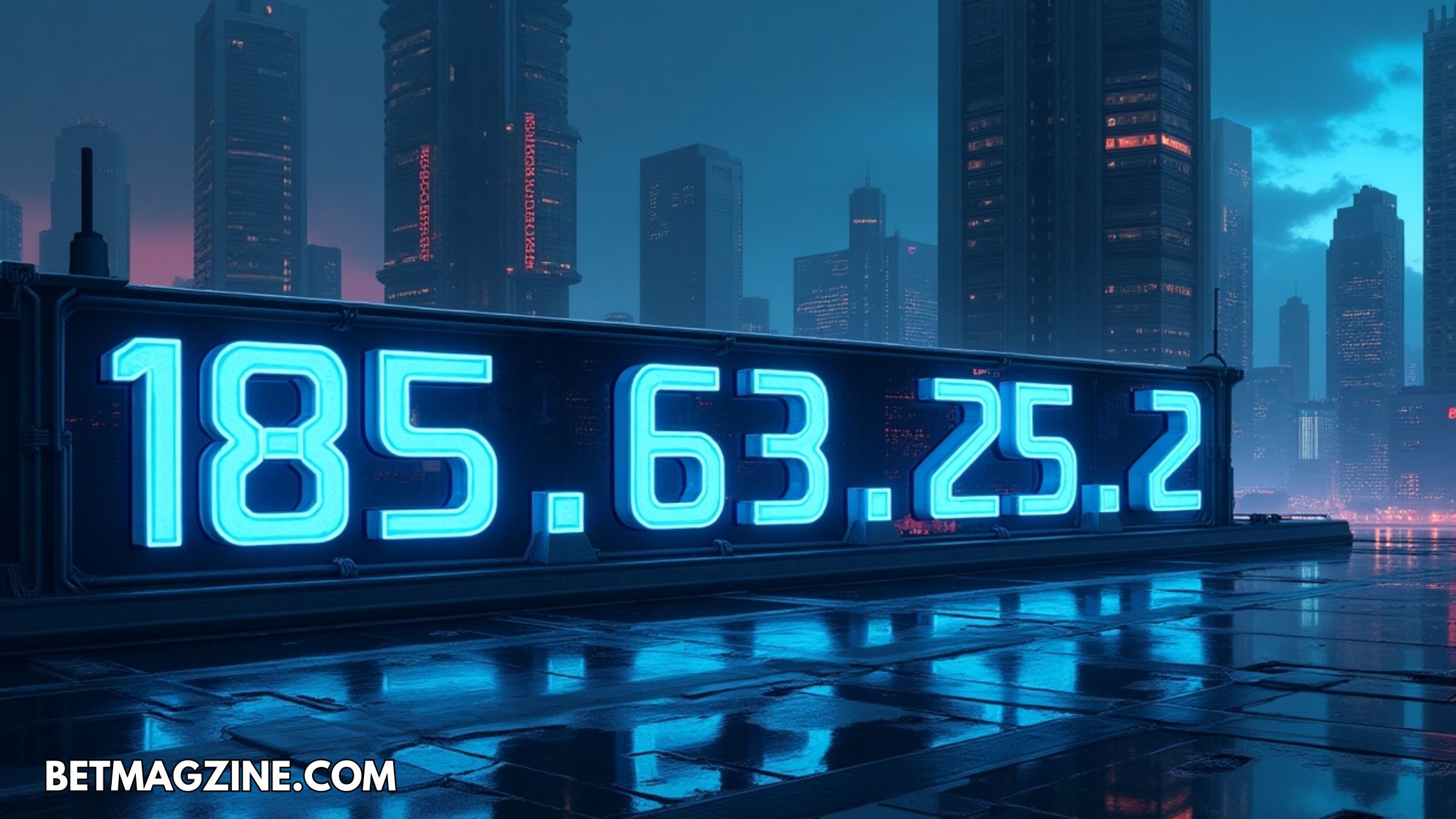In today’s digital world, strange combinations like 185.63.253.2pp often pop up online—especially in server logs, emails, or suspicious URLs. But what exactly does this combination mean? Is it an IP address? A code? Or something more?
In this complete 2025 guide, we’ll break down:
- What 185.63.253.2pp actually means
- Whether it’s a real IP address
- How it might relate to malware or phishing
- Ways to stay safe
- And common questions people ask about strange IP strings
Let’s dive into the truth behind 185.63.253.2pp.
1. Understanding the Basics: What Is 185.63.253.2pp?
At first glance, “185.63.253.2pp” looks like an IP address—a set of numbers used to identify devices on the internet. However, valid IPv4 addresses follow this format:
xxx.xxx.xxx.xxx
Each section (called an octet) must be between 0 and 255.
So:
185.63.253.2is a valid IP address ✅- But
185.63.253.2pphas extra characters (“pp”) ❌
So, what is “pp” doing there?
In most cases:
- “pp” does not belong in a standard IP address
- It’s often added by mistake or by a malicious actor
- Could be part of a fake link, scam, or hidden script
2. Is 185.63.253.2 a Real IP Address?

Yes, 185.63.253.2 is a real IPv4 address. It’s part of a public IP range assigned to various hosting services in Europe, typically associated with dedicated servers or VPN providers.
Who Owns It?
Using WHOIS tools, you can trace the IP’s registration. At the time of writing:
- It belongs to a European hosting company
- Commonly used for proxies, VPNs, or web scraping tools
But this can change over time. Hackers also spoof or mask IPs to hide their identity.
3. Why Is “185.63.253.2pp” Appearing in Logs or URLs?
https://betmagzine.com/katsubet/Seeing “185.63.253.2pp” in browser URLs, emails, or logs may indicate:
1. Typos or Formatting Errors
- Sometimes, software or scripts incorrectly append characters
- Someone might mean
http://185.63.253.2, but addedppby mistake
2. Obfuscation for Malicious Use
- Hackers often add extra letters to IPs to bypass filters
- Used in phishing emails or fake login pages
- Designed to trick users into clicking
3. Custom Script or Domain-Based Code
- Some internal tools use tags like
ppfor identification (e.g., “proxy point” or “packet protocol”) - Not a standard practice, but possible
4. Can 185.63.253.2pp Be Dangerous?
Yes. Here’s why:
Cybersecurity Risks:
- If the link is part of a phishing attack, it may steal your login info
- Could redirect you to malware or spyware
- Might install hidden scripts via JavaScript injection
DNS Spoofing:
- If hackers manipulate DNS records, they can make “185.63.253.2pp” seem like a legitimate site
- It may even look like a Google login page but isn’t
Redirection Loops:
- The “pp” part may be used to trigger a specific server script or redirect
- You might not notice until your browser slows down or sends unwanted data
5. How to Stay Safe Around Suspicious IP-Like Links

If you ever encounter a strange IP address like 185.63.253.2pp, follow these steps:
✅ Check the URL Before Clicking
- Don’t trust unknown links in emails, DMs, or popups
- Hover over the link to preview the actual address
✅ Use WHOIS or IP Lookup Tools
- See who owns the IP and where it’s based
- If it points to a shady or unknown hosting service, avoid it
✅ Scan for Malware
- Use tools like VirusTotal to scan links or files
- Keep antivirus software updated
✅ Use a VPN
- If you think your IP has been exposed to risky servers, use a secure VPN to hide your real IP
✅ Update Your Browser and Extensions
- Old browsers are vulnerable to link hijacking and JavaScript-based attacks
6. Is 185.63.253.2pp Related to Any Known Malware or Attacks?
Currently, there are no high-profile reports of this exact string being linked to a specific malware campaign. However, there are trends where similar patterns were seen in:
- Botnet command-and-control (C2) traffic
- Spam emails with hidden redirections
- Fake download links
If you’re a developer or system admin and see “185.63.253.2pp” in logs, it’s best to block it via firewall or proxy settings until it can be investigated.
7. Could It Be a Part of a Game, App, or Custom Software?
Sometimes developers use unique IP + tag combinations like “185.63.253.2pp” for:
- Game servers
- Testing environments
- Private network routing
If you work in IT or game development, it’s possible this is an internal reference, but it should never be exposed to the public.
8. Should You Block 185.63.253.2pp from Your Network?
If you are unsure:
Yes, block it.
Here’s how:
- Use firewall rules to deny access to 185.63.253.2
- Add filters to your email gateway to flag “pp” patterns in IP links
- Use intrusion detection systems (IDS) like Snort to track suspicious behavior
People Also Ask (PAA)
Q1: What is 185.63.253.2pp used for?
A1: It may be a fake or mistyped version of a real IP address. It could also be used in phishing or malware links.
Q2: Is 185.63.253.2pp a valid IP address?
A2: No. “185.63.253.2” is valid, but “pp” makes it invalid in official networking terms.
Q3: How do I check if an IP address is safe?
A3: Use tools like VirusTotal, IPVoid, or WHOIS lookup to see who owns it and if it’s flagged for abuse.
Q4: Can clicking a link like 185.63.253.2pp infect my device?
A4: If the link is connected to malware, yes. Always scan links and avoid unknown sources.
Q5: Why do hackers use modified IP addresses?
A5: To hide real destinations, bypass filters, or trick users into clicking on harmful links.
Conclusion: Don’t Ignore IPs Like 185.63.253.2pp

Strange IPs like 185.63.253.2pp may seem harmless, but they can pose real risks. Whether it’s a typo, a trick, or a hacker’s tool, it’s important to stay alert.
When in doubt:
- Avoid clicking
- Use trusted tools to scan
- Report suspicious activity
- Educate others on the risks
The internet is full of hidden threats, but staying informed is the best defense.



